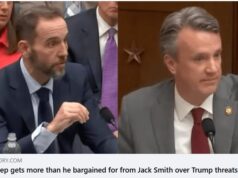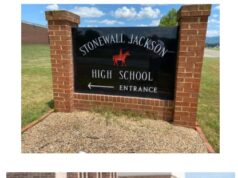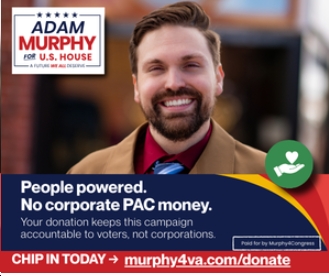by Robbin Zeff Warner, co-founder of Postcards4VA; and Lisa Guide, a co-founder of the Women Effect Action Fund (note: also posted at Medium)
Their activism is new, but the tactics are as old as the republic. A cadre of political neophytes and women – outraged over the election of President Donald Trump – are putting pen to paper to encourage progressive voters to show up at the polls. This hand-writing movement evolved organically at the community level, and has delivered hundreds of thousands of notes and postcards to voters in the 2017 Virginia elections, the special U.S. Senate election in Alabama, as well as many other local, state, and federal elections across the country. This informal, under the radar activity has largely escaped notice, but two new studies show the phenomena is having potent results.
A study measuring the electoral impact of handwritten mail found an increase in voter turnout among those infrequent voters receiving a handwritten note. The effect was similar to the bump in turnout generated by a typical Get-Out-The-Vote door to door canvass. Another analysis published in the journal Behavioral Scientist found that postcard writing has a positive effect on the volunteers, too.
Political campaigns typically engage with voters through paid advertising and high volume, high-tech techniques like internet ads and robocalls, which dial through thousands of phone numbers in minutes. Volunteers typically reach voters through phone banks, textbanks or door to door canvassing. Handwriting personal notes have not been in the equation – until informal, grassroots groups that are independent of party committees and campaigns embraced this tactic on their own.
“After the election I had to do something. I hosted a few meetings that turned into postcard writing parties. Writing postcards makes me feel like I’m doing something significant to reach out to voters,” said Lisa Howard of Falls Church, Va.
Lucia Gill Case of Providence, R.I., founded Write4Change after Trump was elected president. But her note writing advocacy may have been one of the earliest in this wave of women writers, emerging around the 2008 presidential election.
“My group of women in Rhode Island and Massachusetts wanted to work in a state that was meaningful in the presidential election. In 2008 we teamed up with a group of women in northern Virginia, and we called it the Sister Cities Project,” Case said. “We wrote notes on behalf of our Virginia sisters to undecided women voters that they had called or canvassed. After the 2016 election, we doubled down.”
Georgia’s special election in the 6th congressional district spawned a national postcard campaign. Organized mainly through Facebook, people from across the country wrote postcards to voters in Georgia in support of Democratic candidate Jon Ossoff.
Wherever there was a close race, special election, or an opportunity to share their newfound activism, these women began gathering regularly to hand write postcards to registered voters.
Some gravitated to writing as a rejection of the typical volunteer options. Others were drawn to it because it was an activity that made sense to them. “This was a different way to volunteer. I feel I had the chance to participate in voter outreach, one postcard at a time,” said Roberta Jameson who also wrote for the 2017 Virginia election.
New organizations such as the Sister District Project have married the old (note writing) with the new (online organizing). Sister District has 65 teams of volunteers nationwide; each team is “sistered” with two or three legislative candidates to provide field and fundraising support.
“Postcarding is a low-impact way to get folks to volunteer for a campaign and connect to our community,” said Gaby Goldstein, co-founder and political director of Sister District.
Anecdotal evidence of the success of postcards surfaced first. Angela Lynn, a candidate for delegate in Virginia’s 25th District, said that when she canvassed, voters showed her the postcards they received. People were reading the postcards, saving them and sharing them with others.
Postcards4VA is a grassroots initiative to flip Virginia blue by writing postcards to friends, neighbors and voters throughout the state asking them to vote. In 2017, more than 2,000 volunteers wrote 137,000 postcards to help flip 15 seats in the Virginia House of Delegates and sweep the top-of-ticket races for Governor, Lt. Governor, and Attorney General.
While the numbers and positive stories were promising, a big question remained: are handwritten notes effective? Is this explosion of activity the polite flipside of the post-Trump female primal scream – or does it actually get results? Two studies conducted during the Virginia 2017 election cycle indicate that handwritten personal notes and postcards are powerful – both for getting out the vote and for volunteer engagement.
In the first study, the Analyst Institute found a measurable increase in voter turnout among infrequent voters who received a handwritten note.
The Women Effect Action Fund, a collaboration of donors that supports programs designed to encourage gender equity – commissioned the Analyst Institute to see whether women would respond to a family-friendly economy agenda – living wages; quality, affordable child care; paid family and medical leave; and earned sick days – and whether those issues could mobilize women to vote. Part of the program was measuring the effect of note and postcard writing on the electorate and on the volunteers. The study targeted nine delegate districts in Northern Virginia and used the family friendly economic agenda to persuade women to vote for Ralph Northam for Governor. The target group spanned racial and ethnic groups as well as income, age and education levels.
The program generated 13,000 handwritten postcards and notes by more than 100 volunteers who were part of organically-grown, grassroots groups. Most were in Virginia, but some were written by out-of-state volunteers. The Analyst Institute’s study found these notes increased turnout by 0.4 percent; by comparison, a typical Get-Out-The-Vote canvass increases turnout by 0.3 percent. The study’s ultimate finding: Personal notes and postcard writing has an as good or better effect on voter turnout than the tactic most commonly used by political campaigns.
Research published in the journal Behavioral Scientist also found that postcard writing had a positive effect on the people writing the postcards because they enjoyed connecting with voters through writing (rather than knocking on doors or making phone calls) and they appreciated the social interaction of writing with friends and neighbors.
CitizenBe (a nonprofit startup of behavioral and social scientists) and Postcards4VA conducted the study to evaluate political involvement and sustained engagement. They surveyed over 600 volunteers who participated in Postcards4VA’s 100 Postcards Challenge for the 2017 Virginia election and found that writing postcards can increase civic engagement in terms of emotional outlook, scope of involvement and likelihood of continued participation. Volunteers enjoyed postcard writing because they could tailor them to reflect their self-identity. Volunteers who enjoyed writing focused on the postcard message. Those with an eye for design used colored markers, highlighted key words, and made the postcards their own. People felt ownership over their cards which made the process enjoyable for them.
The findings also showed that volunteers who wrote postcards in the company of others were more willing to take future political action. Some wrote cards alone, but most wrote them with friends, family or neighbors in coffee shops, kitchen, knitting stores and cafes, making postcard parties a powerful motivator for continued involvement.
More than 95 percent of those surveyed said they were interested in continuing to write postcards for future elections, especially after writing for winning campaigns.
Jen Runkle and Marcy Butler organize a group of women who meet weekly at a local coffee shop in Alexandria, Virginia. They’ve written postcards for dozens of campaigns, inside and outside of the state.
“Marcy and I met on the campaign trail last year and wanted to funnel our superpowers into creating a community focused on doing,” says Jen. “Postcard writing stops us from complaining about what we can’t control, and focuses on something positive – impacting voters in key districts and creating community in our own.”
“We think that handwritten or pseudo-handwritten mail has untapped potential (for turning out voters),” said an analysis of election mail communications by the Analyst Institute. “This type of approach cries out for replication and further study.”
These studies demonstrate there is a special place for handwritten mail in the digital age. The directness and simplicity of handwritten notes and postcards brings campaigning back to a personal level of relational organizing. For volunteers and voters, this is a welcome change in today’s political environment fueled by special interest money.
Handwritten mail brings politics back to its roots – the people.



![Video: Former Eastern District of VA Federal Prosecutor Gene Rossi Asks, “Is Donald Trump going to be the lead counsel in that prosecution [of Jim Comey] and do the opening, closing and rebuttal? I pray that he does!”](https://bluevirginia.us/wp-content/uploads/2025/09/rossiedva-238x178.jpg)






![Friday News: “As Trump Weighs Iran Strikes, He Declines to Make Clear Case for Why, or Why Now”; “A former prince is arrested in the UK with accountability in question in the US”; “MAGA’s Newest Enemy [Abigail Spanberger] to Give State of the Union Rebuttal”](https://bluevirginia.us/wp-content/uploads/2026/02/montage0220-100x75.jpg)

